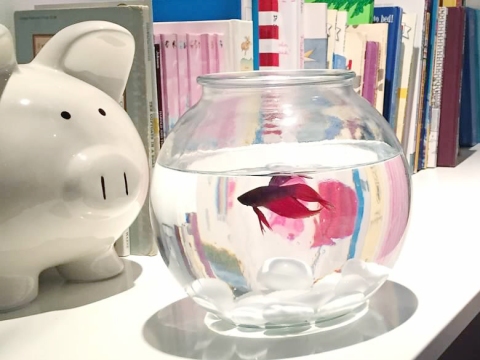Every parent deals with conflict. The conflicts just look different depending on the age and stage of your child, but at the core the conflicts stem from only a few common influences. Ultimately, your child is dealing with an issue and might not be able to express exactly what is happening or why. Maybe they’re just tired or hungry. Or maybe they’re focused on a left or right brain response to a problem. This is where your role as a parent is crucial. Let’s look at some examples of what I mean.
Your toddler cries for 15 minutes when you drop her off at daycare because her socks and shoes don’t fit right. You have to leave her screaming so you’re not late for work.
At bedtime, your son refuses to go to bed and screams that he’s not tired (while yawning the whole time, of course). The more you push, the more he resists. The angrier he becomes, the more physical his actions become, pushing, kicking, and throwing toys.
You keep getting notes from school that your child is hitting and biting other children.
You’re having a great morning at the playground until you mention that it’s almost time to leave. Then your child throws a tantrum and you have to drag them, kicking and screaming, to the stroller while all the other parents are pretending not to watch.
All of these are common examples of conflicts many parents experience. How does the little person that stole your heart, so quickly turn into someone you loathe? And how do you deal with these situations without giving in or being too harsh?
I recently read a book that completely changed the way I think about parenting. It taught me how the brain works and described what’s going on in our children’s heads when emotions have hijacked them.
It’s called The Whole-Brain Child: 12 Revolutionary Strategies to Nurture Your Child’s Developing Mind and I would recommend it to any parent regardless of the age of your child.
I learned to figure out which part of my daughter’s brain has taken over and to react accordingly. In a nutshell it teaches you to connect first, then redirect. This means if your child is obviously taken over by emotion, you connect with them first, right brain to right brain. Once they’ve calmed down, only then can you redirect them or try to talk about left brain alternatives. “It’s generally a good idea to discuss misbehavior and its consequences after the child has calmed down. A child can be much more receptive once the left brain is working again and discipline can be much more effective. It’s as if you’re a lifeguard who swims out, puts your arms around your child, and helps him to shore before telling him not to swim out so far next time.”
Another key point I took from the book is how important story telling is to children. When something bad happens, having the child retell the story in their own words can have a profound effect on understanding, healing, and consequences. “When we help our kids integrate their past into their present, they can then make sense of what’s going on inside them and gain control over how they think and behave.”
I also had an unexpected journey into my own brain. I learned how important it is not only to raise a whole-brain child, but to be a whole-brain parent. I got a glimpse of how my brain works and how to better handle my own conflicts. The book offers some wonderful suggestions for when you’re at those points of frustrations and you’re focused on one negative aspect of what’s happening. “Slow down for a few seconds, get quiet, and ask yourself these questions: What’s something funny or adorable my child said or did lately? What’s my child’s favorite t-shirt? How would it feel if I weren’t a parent?”
Sometimes it’s easy to get caught up in the situation at hand (my child is screaming about her shoes or won’t go to bed) that we forget all the good stuff (she painted me a picture at school and told me she loved me or he picked a flower for me today).
I won’t get into all the details of the book because I think it’s best read yourself. I know I will be visiting and revisiting this book for each new stage of development as my daughter grows. The strategies in the book are relevant, easy to comprehend, and science-based but nurture driven. No matter your parenting style, I believe you’ll find this book applicable.
Happy reading!



